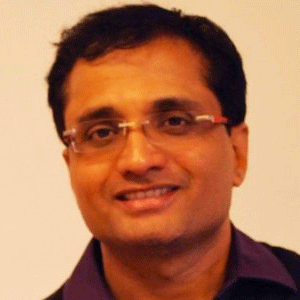THANK YOU FOR SUBSCRIBING
Editor's Pick (1 - 4 of 8)

Mohit Batra, Managing Director, Coldharbour Marine
Whilst scrubbers deal with cleaning the exhaust gas emissions to reduce impact for our atmosphere, and ballast water treatment systems deal with treating the ecologically harmful micro-organisms, bacteria and zooplanktons transported from one geographical region to another. There are various equipments available based on multiple technologies and/or combination of technologies that are fit for purpose and have undergone the statutory testing and certification by IMO. A lot of these systems are now also required to undergo a USCG testing and approval process. While most owners would prefer not to have the additional expense in equipping the vessels with new expensive equipment, they are required under regulations to fit the vessels with this equipment at the next major dry dock.
Digital technology
The maritime industry is evolving in terms of digital transformation. Advanced software and simulation capabilities are resulting in more complex systems being controlled by computers. There is talk about artificial intelligence, cognitive learning, and internet of things, but generally, there seems to be a lack of understanding in the outcome that needs to be achieved by adopting these technologies. Everyone is interested in big data whereas the focus should be on smart data. With real-time information available, the intelligence should move from the level of information to insight to enable more informed, accurate and proactive decisions. In my opinion, I think that the industry is adopting digitalization because the next person or company is getting there, whereas, the emphasis should be on digital transformation where outcomes are clearly defined. A strong interest and engagement from top management to move ahead with selected technologies with an appropriate and agreed timeline to implement the solution will be the key to success.
Collaborative Approach
We are moving towards a more connected and collaborative world and the shipping industry is no different. Government and companies are encouraging constructive collaboration amongst the industry players and are taking steps to develop new capabilities. There are acceleration centers focused on providing support and funding to promising new technologies. The collaborative approach is enabling many projects and clever initiatives such as engaging and connecting the entire marine eco-system, remote controlling a ship using satellite connectivity, testing the efficiency of an optimized fully integrated hybrid power module combining engines, an energy storage system and power electronics or the introduction of autonomous vessels. Whilst we are making big strides from conceptualizing these new technologies to testing them, we may still be a few years away from achieving the desired proficiency and safe adoption.
Author’s Bio: Capt. Mohit Batra is an astute business professional, entrepreneurial leader, influencer, author, educator and motivational speaker with nearly three decades of diverse cross functional experience across the maritime industry. He currently serves as the managing director for Asia at Coldharbour Marine and is the executive director of Singapore Maritime Network. Mohit has been involved in various aspects of business from spearheading marketing, sales and business development strategies to implementing effective supply chain solutions and advising on technology trends, acquisition investment or organic growth opportunities. He is a qualified Master Mariner and holds an MBA degree from Oxford, UK.
See More: Top Marine Tech Solution Companies
Weekly Brief
I agree We use cookies on this website to enhance your user experience. By clicking any link on this page you are giving your consent for us to set cookies. More info
Read Also














